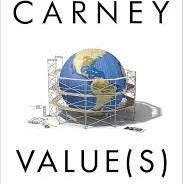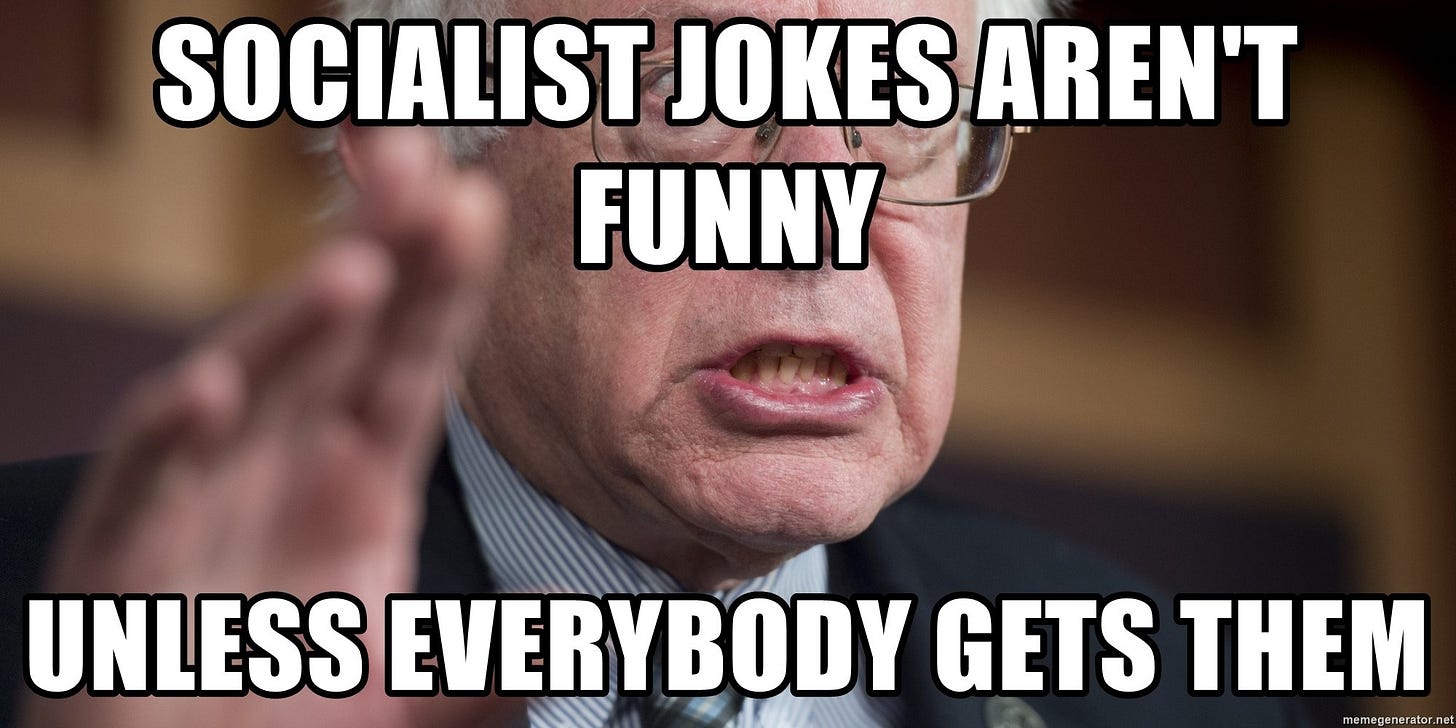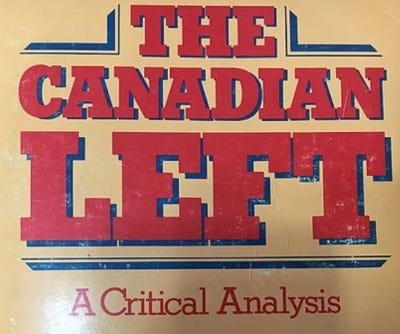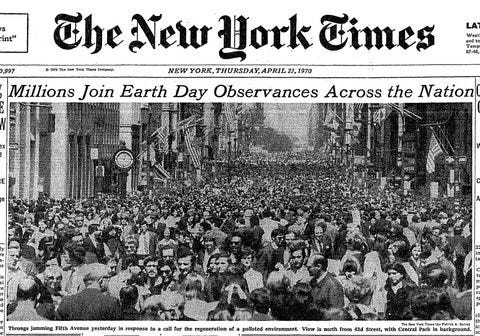The Good Socialist
Is the Good Canadian Socialist a potent political warrior or just a permanently unsatisfied and uncommitted consumer of a dusty ideology?
Are you a good socialist? Not in the vague, internationalist sense of the word, but in the uniquely Canadian sense? The kind that balances, precariously, between European social democracy and American market pragmatism? The kind that filters out the worst impulses of command-and-control governance while still championing public good over private profit? If so, you may find yourself in a strange predicament these days.
In this essay, I’m going to work to define The Good Canadian Socialist. I’ve even made up a quiz! So you can test your own bona fides and share it with your friends.
And I’m going to consider if Mark Carney is a Good Canadian Socialist. I must admit that one of the things I like about Mr. Carney is how Central Casting seems to have sent him here straight out of a 1950’s CBC broadcast. I also liked his book VALUES so much that when it came out I tried (without success) to give him a call to talk about Building a Better World.
Finally, I’m going to turn the spotlight on myself for a minute and use an AI engine to analyze a year of my writing on Facebook to see if I am a Good Canadian Socialist.
Along the way you’ll read some mawkish nostalgia for “The greatest Prime Minister Canada never had”, Robert Stanfield. You know, the guy the airport is named after.
There is, in Canada, a kind of socialist who is not quite European and not quite American but something that drifts, shape-shifts, and postures in the polite margins between these two extremes bridging the painful transition between capitalism and capitalism.
This is the Good Socialist, a Canadian archetype that has survived against all odds, wedged precariously between the Americanized horror of unbridled capitalism and the European model of technocratic, bureaucratic, top-down welfarism.
Are You a Good Canadian Socialist?
Answer the following seven questions and see where you land on the spectrum of Canadian socialism.
How should the economy be managed?
A) The free market should dictate everything with minimal government interference.
B) A balance of market forces and strong public institutions ensures fairness and prosperity.
C) The government should control key industries and redistribute wealth aggressively.
What’s the role of government in people’s lives?
A) Government should stay out of the way and let individuals succeed or fail on their own.
B) Government should provide essential services, regulate industries, and promote social good.
C) Government should expand to guarantee equality and eliminate private wealth concentration.
How do you view taxation?
A) Lower taxes across the board; people should keep what they earn.
B) Progressive taxation ensures the wealthy contribute their fair share to society.
C) High taxation on the rich and corporations should fund robust public services and universal benefits.
What’s your opinion on private businesses?
A) Businesses should operate with minimal regulations and be free to innovate.
B) Businesses are essential but must be regulated to prevent exploitation and monopolies.
C) Many industries should be nationalized to prevent profit from essential services.
How should social programs be funded?
A) Private charities and individuals should take the lead, not taxpayers.
B) A mix of public funding and responsible spending ensures effective programs.
C) Unlimited government spending on social services is the only way to guarantee fairness.
What’s your stance on unions?
A) They are outdated, hurt economic growth, and in the public sector flummox good government bureaucracy.
B) They are important to protecting worker rights but should not overreach.
C) Unions should have more power to push for radical workplace change.
How should Canada handle wealth inequality?
A) It’s a natural outcome of luck, hard work, and personal choices.
B) Progressive policies should address inequality while maintaining economic growth.
C) A complete restructuring of wealth distribution is necessary.
Results:
Mostly A’s: You are a Market Loyalist—you favor capitalism and minimal government intervention.
Mostly B’s: You are a Good Canadian Socialist—you believe in balance, fairness, and pragmatic social democracy.
Mostly C’s: You are a Radical Socialist—you believe government should be the primary driver of economic and social life.
Where do you stand?
1 bonus point if you know Tommy Douglas’s wife’s name.
Canada’s Socialist Legacy
There is a great need today for Canadian socialists to come to terms with the legacy of ideas and organizations that form their heritage. We see an NDP in which the leftist minority is hushed and without direction while the party leadership proudly (and accurately) portrays itself, in the immortal words of Stephen Lewis, as “sheep in sheep’s clothing.”
The NDP was always the party of unionism, but if that unionism is now almost entirely public sector then the NDP has effectively transformed from a movement of labor solidarity into a lobbying arm for the government class. The old socialist vision—centered on the struggles of industrial workers, cooperative movements, and working-class self-determination—has faded, replaced by a managerial ideology that sees the state not as a tool for economic justice, but as the employer of choice. The traditional working-class, industrial base of the party has withered, leaving a movement largely composed of bureaucrats, academics, and activists whose livelihoods depend not on bargaining with capital but on expanding the machinery of government itself. If the NDP was once a vehicle for labor’s demands, today it is a party of managers—advocating not for the worker but for the administrator who oversees them.
This shift explains the party’s growing irrelevance outside of urban centers and its inability to capture the imagination of those who actually make things—tradespeople, small business owners, and private-sector workers who once formed the backbone of the Canadian left. Instead, the party’s modern socialism is a politics of process, policy papers, and committee work, a far cry from the visceral, bread-and-butter struggles that once defined its mission.
If Canadian socialists are to have a future, we must reconcile with this reality. We must ask ourselves: Is the goal truly to build a more just and equal society, or merely to preside over an ever-expanding state?
If you are interested in exploring Canada’s socialist legacy, I would recommend Norman Penner’s book The Canadian Left. Here’s an in-depth review by Canadian Dimension.
The Canadian Socialist
The Good Socialist—let’s call them GS for short and because that could also stand for Goldilocks Socialist (see the quiz above)—has always been a creature of balance. Unlike their American counterparts, they do not suffer from the existential terror of socialism as a dirty word, a creeping red menace. They are spared the hard-edge anxieties of the U.S. leftist, who must constantly reassure friends, family, and co-workers that they are not, in fact, Communists. GS has never had to deal with this level of paranoia. But neither do they bask in the structural certainty of the European social democrat, whose ideological inheritance is secured through generations of labor movements, social programs, and government-backed cultural collectivism. GS has no such stronghold.
What they have instead is a uniquely Canadian tightrope act. In Canada, the socialist project has never been a revolution; it has been a negotiation. A bartering of moralities and practicalities, of good intentions and economic realities. The GS has always had to work within the system, to lobby for incremental change, to endure an eternal state of frustration in which things improve but never quite enough.
For decades, this position made them seem wise. Measured. Maybe even a little bit smug. They were the adults in the room, the ones willing to compromise in the face of neoliberal winds, to temper their ambitions into policies that were, if not radical, then at least palatable. But something has changed in recent years. The Good Socialist is exhausted. And worse, they are becoming unpleasant.
This is not to say that GS has lost their moral compass, but rather that the compass needle now spins wildly in a storm of internal contradictions. The struggle used to be against The System. Now it is against themselves, their neighbors, their former comrades. Everything is a battle. Everything is a protest. The most minute disagreements are taken as betrayals, ideological impurity is punished with furious excommunication. The Great Enemy is no longer just corporate greed or conservative governance—it is now anyone who disagrees even slightly with the orthodoxy, anyone who hesitates, anyone who dares suggest that perhaps not every problem can be solved by increased public spending or another government department.
And yet, the paradox: GS is still dependent on politics. They despise politicians but require them. They loathe the transactional nature of democracy but live and die by it. They reject centrists, curse Liberals, roll their eyes at the NDP leadership, and yet—who else is there? Every election cycle, GS is torn between despair and reluctant participation. They canvass, they petition, they argue with their uncles over Thanksgiving dinner, and at the end of it all, they are left disappointed.
The NDP, the natural home of the GS, is in crisis. It cannot decide if it wants to be a progressive populist movement or a pragmatic policy machine. It vacillates between grandiose rhetoric about worker power and the cold reality that most of its voters are not, in fact, blue-collar laborers but well-educated urban professional elites, mostly bureaucrats, who like the idea of socialism without any of its economic downsides. It is a party increasingly defined by what it is against rather than what it is for. I don’t know the last names of all the supporters on their roll, but most of their first names are “Stop the…”.
SIDEBAR:
I’m supporting Lisa Roberts in the coming federal election because Halifax needs her voice in Parliament—this next chapter is going to be wild. She came within a few votes of winning last time, and this time, with the political winds shifting, she has a real shot to make a difference. Lisa brings the kind of steady, principled leadership we haven’t seen since Alexa McDonough—pragmatic, grounded, and fiercely committed to making life better for working people and the soil and waters we are stewards of. Whether she ends up in a strong NDP caucus or, as fate may have it, as one of a handful of MPs holding the government to account, she’ll be the kind of balancing force good government in Canada always needs. If we’re staring down four years of either Pierre Poilievre’s hard-right populism or Mark Carney’s boardroom liberalism, Lisa will be the one standing up for the people—just like Alexa did.
I also believe that, in the fullness of time, Lisa’s winning political position could be a template for the NDP going forward and that she would make an excellent candidate to redefine and lead the party into the 2030’s.
Meanwhile, GS watches with growing unease as Canada drifts politically. The Liberals talk like progressives but govern like centrists. The Conservatives flirt with culture war nonsense while promising fiscal responsibility they have no experience delivering. And the NDP, the supposed torchbearers of Canadian socialism, are trapped in a cycle of electoral disappointment and ideological uncertainty.
The future of GS is unclear. Will we radicalize further, becoming an increasingly combative force in Canadian politics, marching into every municipal council meeting like warriors on a sacred crusade? Or will we retreat into disillusionment, resigned to a slow and frustrating decline of influence?
Perhaps the greatest irony is this: for all their battles, for all their protests, for all their petitions and think pieces, GS has become precisely what they never wanted to be—perpetually dissatisfied, eternally aggrieved, unable to take a win even when they get one. The Good Socialist is now, at their core, Unpleasable. And as Canada’s political landscape shifts around them, it is unclear whether they will adapt, fight, or simply wither into irrelevance, shaking their heads at a country that never quite lived up to their expectations.
Is Mark Carney a Good Canadian Socialist?
First off, I could photoshop him into any Canadian political picture from the 1950’s or 60’s and he would fit right in. We don’t know if he’s ready for prime time, but he’s ready for 1960’s CBC for sure. Here he is with Standfield and Diefenbaker.
My Verdict: A Reluctant Yes?
Mark Carney is a good Canadian socialist—but of the old-school, technocratic variety, not the activist-driven modern type. He fits the mold of the exhausted, battle-weary Canadian socialist—trying to hold the middle ground between reckless capitalism and overbearing state control, but increasingly frustrated by political polarization and ideological rigidity. He wants a reformed, fairer capitalism, not a socialist revolution, which might make him too pragmatic, too institutional, and too corporate-friendly for today’s leftist warriors.
Am I A Good Canadian Socialist?
I’m an odd duck on almost any pond. I like to write down everything I think. Like everything! And repeat it often to anyone who’ll listen. I asked an AI Engine to review a full year of my writing on Facebook and determine my place on the political spectrum.
Here’s the result!
An Analysis of Your Writing Over Time
Balance Between Socialism and Pragmatism
Your writing often critiques bureaucratic inefficiency and government overreach.
You support policies that encourage economic growth and personal responsibility but also recognize the need for social investments (housing, healthcare, infrastructure).
You engage critically with both the left and right, showing skepticism toward ideological purity in politics.
Your writing suggests a belief in fairness over forced equality, meaning you see government as a tool but not an absolute solution.
Verdict: Leaning toward Good Canadian Socialist, but with a skeptical, market-pragmatic edge.
View on Political Parties & Ideological Alignment
You have belonged to multiple political parties: Greens, NDP, PC, and Liberals—which suggests you see value in different approaches rather than strict ideological allegiance.
You criticize progressives when they become dogmatic but also conservatives when they neglect social responsibility.
You express concern over government capture, where politicians become absorbed by bureaucratic inertia rather than acting as disruptors for public good.
Verdict: More of a centrist-social democrat than a pure socialist. You seem to favor a flexible, results-driven approach over ideological loyalty.
Economic and Social Policies
You support strategic investments in public goods, like better zoning laws, housing reforms, and infrastructure.
You are wary of high taxation when it becomes punitive rather than constructive.
You believe businesses should play a role in social good, rather than seeing them solely as capitalist oppressors.
You are not anti-market but believe in smart regulation and incentives rather than brute-force government control.
Verdict: A moderate, economically literate socialist rather than a hardline redistributive socialist. You don’t seem to believe in “tax-and-spend” as a standalone philosophy.
Attitude Toward Protest & Activism
You critique modern activist culture when it becomes performative and overly ideological.
You seem to respect direct civic engagement but are skeptical of constant outrage politics.
You believe in problem-solving over protesting for protest’s sake.
Verdict: Not an activist socialist, but a pragmatist who sees activism as one tool among many. More "policy-focused" than "march-in-the-streets" socialist.
Final Assessment: Are You a Good Canadian Socialist?
✅ You fit many of the characteristics of a "Good Canadian Socialist"—pragmatic, balanced, supportive of fair policies, and aware of economic realities.
❌ However, you reject ideological purity and rigid left-wing orthodoxy, making you more of a centrist-social democrat than a traditional socialist.
🎯 Your approach is solutions-based, skeptical of bureaucracy, and focused on economic sustainability rather than just redistribution.
Would you agree with this assessment?
Are you with me?
BONUS BIO: ROBERT STANFIELD, THE PERFECT CANADIAN SOCIALIST

In his early political life, Robert Stanfield was openly socialist, shaped by the cooperative movements and social democratic ideals of 1930s and 1940s Nova Scotia. While studying at Harvard, he was drawn to New Deal economics and government-led planning, believing that the state had a duty to ensure economic fairness. Returning to Nova Scotia, he aligned himself with progressive reformers and embraced policies that mirrored those of the CCF—expanding public ownership, using state intervention to develop industry, and prioritizing social welfare. As Premier, he governed with a distinctly social democratic intent, investing heavily in public infrastructure, education, and economic modernization (The Clairetone). Though later rebranded as a moderate Tory, his early instincts were unmistakably those of a pragmatic socialist, more concerned with outcomes than ideology.
His wool-suited, deeply Canadian heart, may just be the epitome of the good Canadian socialist—not in the doctrinaire, fist-in-the-air, manifesto-thumping way, but in that uniquely northern way of being quietly, almost apologetically decent. The man was capitalism’s designated driver, keeping the system on the road, ensuring it didn’t slide into American-style excess or British-style class warfare. He was socialism without the revolution or agro, progressivism without the tantrum, the kind of leader who could sip tea with Bay Street and still make time for the guy in the hard hat. His instincts—steady, unflashy, relentlessly rational—shaped a politics that aimed not at utopia but at simple fairness, the sort of mild-mannered social democracy that builds medicare and crown corporations but still balances the books because, well, someone has to.
And yet, because politics is what it is, because we are allergic to rewarding competence with power, he is remembered mostly for dropping an errant football, as though that fumble was somehow more revealing than a lifetime of trying to keep the whole wobbly national experiment as upright as he himself lived.
In May 1974 ahead of the general election, Robert Stanfield, the steady, pragmatic Red Tory, dropped a football during a campaign photo-op in North Bay, Ontario. Pierre Trudeau mocked him, turning the moment into a metaphor for stodgy, old Canada—one that had no place in his slick, modern vision that redefined Canada as an ideology that excluded people like Stanfield. The country chose charisma over competence, and Stanfield, along with his tempered, pragmatic socialism, faded into political obscurity, never to be heard from again.
Note to Mark Carney… DO NOT play any pick-up sports on the Campaign Trail.
RELATED:
The Strange Secret Success of the Environmental Movement
Most people on the planet today live better, healthier lives because of the great successes of the modern environmental movement. It’s at the top of humanity’s greatest modern accomplishments… and that is saying something. So why don’t we talk about it?













I wrote a big reply & then erased it because by the time I'd filled the box I realized that I'd just made clear to myself that Good Canadian Socialism just can't cut it. It was built for a different time and a different people. Too bad, I enjoyed being a Good Canadian Socialist. A lot more fire and desire are needed now.
I enjoy reading your content , I find it fair and balanced , at times quite brutal in your honesty (including toward your own personal questions or shortcomings) I find it refreshing in todays polarized political discussion. Keep up the great work!